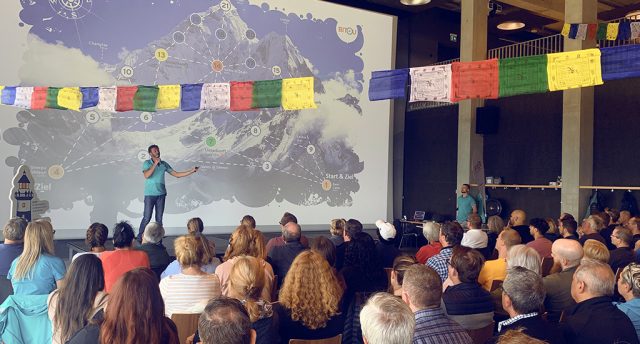Conflicts in the team – How to train conflict resolution in the team

1.Causes of team conflicts
2. Team conflicts as a learning opportunity
3. How to train your team in conflict recognition and conflict resolution
Conflict is a natural part of life, both in our personal lives and in the workplace. Conflicts in the workplace arise because team members don’t always agree or don’t know how to work together despite their differences. These differences may be in the way they accomplish their tasks, their work style, or their personalities. In this article, you’ll learn about the causes of team conflict and how your team can use conflict as a learning opportunity to grow.
1. Causes of team conflicts
Team conflicts can arise for a variety of reasons. In order for a team to work together effectively and to avoid compromising productivity, it is important that conflicts are resolved in a timely and professional manner. The ability to resolve team conflicts is crucial to the success of the company.
Team conflicts arise when there are disagreements about the team’s goals, methods, or needs. Conflicts can also occur when there are different personalities. At first glance, these conflicts may seem commonplace, but if left unresolved, it can be detrimental to productivity and overall morale. Below we provide an overview of the most common causes of conflict:
Expectations of managers and goals are not aligned
Managers follow different leadership styles and may have their own expectations of project goals. Ideally, there is agreement on the scope and outcome of the project. However, this is not always the case, especially in large, complex, and cross-functional projects.
Leaders have a great influence on the expectations of their teams – not only in terms of what should be achieved, but also how it should be achieved. This can lead to tensions within the team as each individual strives to meet the demands of their leader.
Task-related conflicts
Task-related conflict occurs when team members rely on each other to complete a task or project. If one person on the team does not complete his or her part of the task, it can affect another team member’s ability to complete his or her part on time. For example, if an employee is always late in submitting his or her reports, this will cause the accountant to be late in submitting his or her reports as well.
To avoid these conflicts, make sure all team members know what they need to do in their position so tasks can be completed efficiently and on time.
Personality conflicts
Personality conflicts are one of the most common types of team conflicts. Team members won’t always get along with or like every person they meet, whether it’s a co-worker, a supervisor, or a colleague. It can be challenging to work with someone whose personality does not match your own. However, it is important to try to understand the differences and learn how to work together peacefully and productively.
Work style conflicts
Just as there are differences in leadership styles, there can be differences in work styles. Work style conflicts arise because team members have different preferences for completing tasks. Some work quickly and move on to the next task as quickly as possible, while others prefer to complete tasks slowly and with deliberation. Some people are self-starters who need little to no direction to complete a task, while others need guidance every step of the way. The best way to avoid this type of conflict is to recognize that everyone has a different work style. Ways must be found to work together to achieve the same goal despite these differences.
2. Team conflicts as a learning opportunity
In the area of team development, conflict management is one of the most important attributes. It is important to anchor a team culture that enables sustainable learning, empowers team members and teaches them to perceive the diversity of the group as a real development opportunity. What distinguishes loose groups from functioning and high-performing teams is not least the ability to perceive a conflict as such and to deal with it successfully before it escalates.
3. How to train your team in conflict recognition and conflict resolution
Team conflicts have different causes – recognizing and resolving them at an early stage contributes significantly to team success. With our active modules for team development, you train precisely these aspects in a playful environment. Whether “Mars Pioneers”, “One Way Out” or “Talk to Survive”; all modules are about finding your own role, communicating factually and clearly and discussing conflicts openly in order to be successful together. Time pressure and exciting simulations, which at first glance have nothing in common with your everyday office life, provide valuable learning experiences for your team. How do we come to a common denominator? What decisions have to be made? What hurdles are there and how do we overcome them together?
This allows our active modules to move your team forward
- You encourage your team to find solutions to problems on a factual and relationship level
- You train the reflection in the team
- You optimize the team cooperation
- It clarifies the different roles in the team
- They expose team conflicts: ‘Disunited bunch becomes workable team’
- They enable the achievement of a common goal
At the end of our active modules comes the reflection and thus the most valuable part: Together we structure
the learning outcomes, discuss the takeaways of the individual teams, and create sufficient space for the
reflection on your conflict resolution skills.



